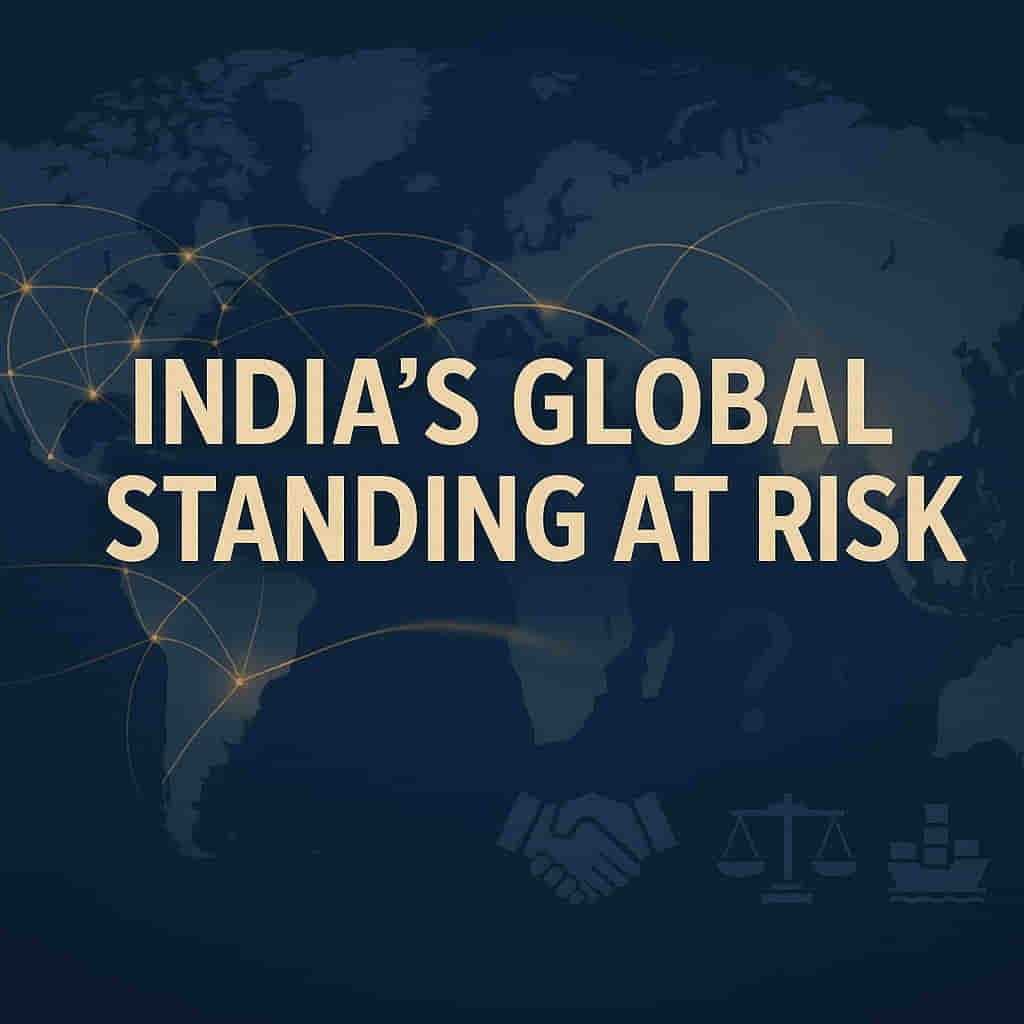Modi's Summit Absences Criticized Amid Concerns Over India's Global Standing and US Trade Relations
International News
|
Updated on 31 Oct 2025, 12:40 am
Reviewed By
Aditi Singh | Whalesbook News Team
Short Description :

▶
Detailed Coverage :
The news reports that Prime Minister Narendra Modi skipped the ASEAN Summit in Kuala Lumpur and the Gaza peace summit. The article criticizes the explanation for missing the ASEAN Summit, stating that Diwali celebrations were already over. The author, Sushant Singh, suggests that Modi is avoiding multilateral engagements due to a fear of being in the same room as Donald Trump, particularly in anticipation of a potential second Trump presidency. This avoidance, the article argues, diminishes India's diplomatic voice and relevance in crucial regions like West Asia and Southeast Asia, potentially weakening India's strategic positioning, including the Quad. It notes a shift in US foreign policy, with a potential for increased engagement with Pakistan under Trump, while reducing tariffs for Pakistan but maintaining punitive tariffs for India. The article highlights the negative economic consequences for India, such as threatened sanctions on Russian oil purchases and the impact of US tariffs on industries like diamonds in Surat and textiles in Tiruppur, leading to job losses and reduced factory operations. The author critiques Modi's foreign policy approach, suggesting it relies too heavily on personal relationships rather than strategic power, a facade now exposed by Trump 2.0. The news implies that India's utility to the US is diminishing, and Modi's strategy of evasion risks national degradation.
Impact: This news has significant implications for India's geopolitical standing, economic ties with the US, and the welfare of Indian businesses and workers. The potential for increased tariffs, sanctions, and reduced market access poses a direct threat to Indian exports and employment. The article suggests a profound shift in how India is perceived and treated on the global stage, with significant economic ramifications. Rating: 9/10.
Difficult terms: Multilateral engagements: Meetings or agreements involving multiple countries. Act East policy: India's foreign policy initiative to promote economic, political, and strategic ties with Southeast Asian countries. Indo-Pacific strategy: A geopolitical concept focused on the maritime space encompassing the Indian Ocean and the Pacific Ocean. Quad: Quadrilateral Security Dialogue, an informal strategic security dialogue between Australia, India, Japan, and the United States. Secondary sanctions: Sanctions imposed on third parties for engaging in transactions with sanctioned individuals, entities, or countries. Economic coercion: The use of economic power to influence the foreign policy or behavior of another country. Godi media: A pejorative term used in India to describe media outlets perceived as being overly supportive of the ruling government. Transactional: Pertaining to or characterized by a focus on practical outcomes and mutual exchange rather than on deeper relationships or principles.
More from International News
Latest News

Auto
Suzuki and Honda aren’t sure India is ready for small EVs. Here’s why.

Brokerage Reports
Stocks to buy: Raja Venkatraman's top picks for 4 November

Mutual Funds
Quantum Mutual Fund stages a comeback with a new CEO and revamped strategies; eyes sustainable growth

Tech
Why Pine Labs’ head believes Ebitda is a better measure of the company’s value

Banking/Finance
SEBI is forcing a nifty bank shake-up: Are PNB and BoB the new ‘must-owns’?

Industrial Goods/Services
India’s Warren Buffett just made 2 rare moves: What he’s buying (and selling)
Renewables Sector

Renewables
Brookfield lines up $12 bn for green energy in Andhra as it eyes $100 bn India expansion by 2030
Startups/VC Sector

Startups/VC
a16z pauses its famed TxO Fund for underserved founders, lays off staff
Renewables Sector

Brookfield lines up $12 bn for green energy in Andhra as it eyes $100 bn India expansion by 2030
Startups/VC Sector
